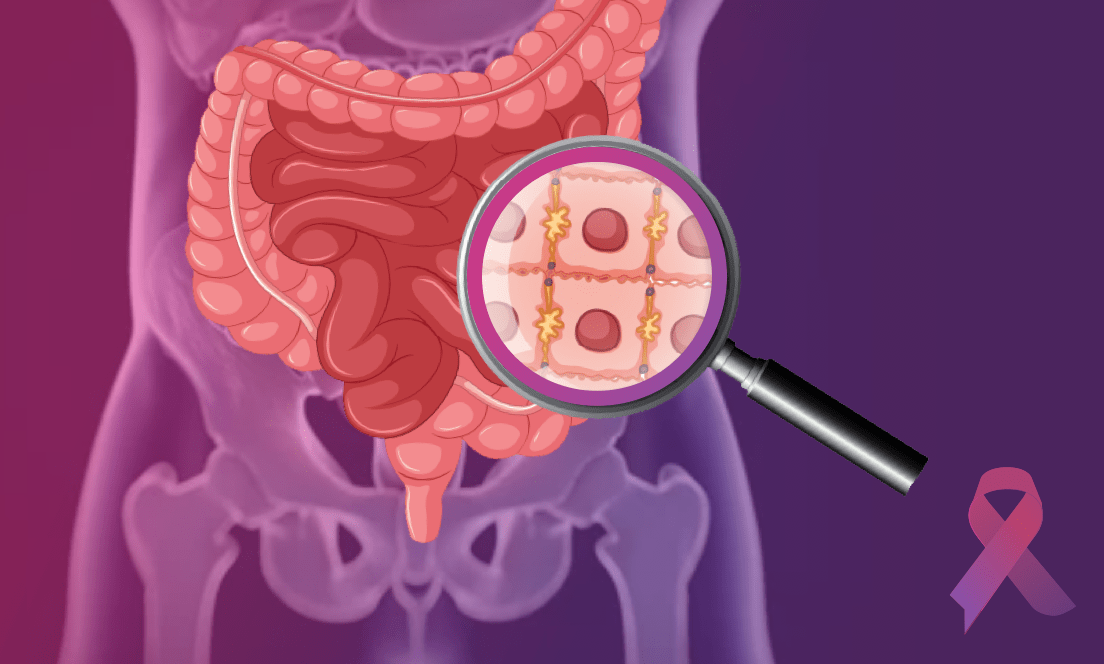Search:
Categories
Archives
Colorectal cancer
- CURIA
- Jun, 06, 2022
- Informed Patient
- Comentarios desactivados en Colorectal cancer

Colorectal cancer is the second deadliest cancer type and 1.9 million cases are estimated so far causing about 0.9 million deaths worldwide1. Incidence of colorectal cancer cases is higher in highly developed countries but the cases in middle- and low-income countries are on the rise due to westernization1. To add to it, many cases of early onset of colorectal cancer are on the rise. These facts suggest that there is a greater need to increase awareness about colorectal cancer.
What is colorectal cancer?
Colorectal cancer, sometimes called colon or rectal cancer depending on whether they originate from colon or rectum. These cancers are grouped together because of their common features1. Most colorectal cancers originate and grow from a small clump of cells that form the inner lining of the colon or rectum (called as polyp). Most polyps never develop into colorectal cancer. But, over time, some of these polyps can transition to colon cancer and if detected in later stages, they could be fatal.
If a polyp develops into a malignant tumor , it can spread into the wall of the colon or rectum over a period of time. From the wall they then spread to blood or lymph vessels and then to nearby lymph nodes or to distant parts of the body.
Risk Factors
1. Being Overweight – Being overweight increases risk of colorectal cancer in both men and women but more so in men.
2. Being physically inactive – People who are physically inactive have a greater chance of developing colon cancer.
3. Certain diets – Diet high in red meats such as beef, pork, lamb, processed meats and sugary drinks increases the risk factor. Low blood level of vitamin D could increase risk.
4. Smoking – just like with other cancers, smoking increases the risk of colorectal cancer.
5. Alcohol – moderate to heavy alcohol drinkers are more susceptible to colorectal cancer.
6. Age – Aging accelerates the possibility of getting colorectal cancer especially after the age of 50.
7. History – a history of adenomatous polyps increases the risk of colorectal cancer. Even if you had colorectal cancer and it is completely removed, there are chances of developing this cancer again.
8. Inflammatory bowel disease – A history of having an inflammatory bowel disease increases the risk of colorectal cancer.
9. Rare inherited syndromes linked to colorectal cancer – such as Peutz-Jeghers syndrome, where a special type of polyp called hamartoma develops in the digestive tract. In the MUTYH -associated polyposis (MAP) syndrome multiple colon polyps are present which often turn into cancers.
10. Racial and ethnic background – Certain racial and ethnic backgrounds have a higher incidence and risk of colorectal cancer such as African Americans and Jews of Eastern European descent1.
11. Type 2 diabetes – People suffering from type 2 diabetes usually who are non-insulin dependent have a higher risk of colorectal cancer basically because of factors such as physical inactivity and being overweight.
Prevention Measures
There is no definite way to prevent cancer. But a few preventive strategies can help.
1. Regular colorectal cancer screening – It takes around 10-15 years for a polyp to develop into cancer hence regular screening can help detect the polyp and remove it. Screening for colorectal cancer is necessary after 45 years of age and in patients with a family history of colorectal polyps or cancer.2
2. Diet and physical activity – Being physically active lowers the risk of colorectal cancer and polyps. The same applies to having a diet high in vegetables, fruits and whole grains and low in red and processed meats.
3. Improve lifestyle choices like quit smoking, reduce alcohol consumption
A great way to understand what information is valid for you is to refer to the Curia app. This app is designed to give information about all types of cancer by gathering it from reliable official sources. It also helps in connecting with oncology experts and ongoing clinical trials.
Referencias:
